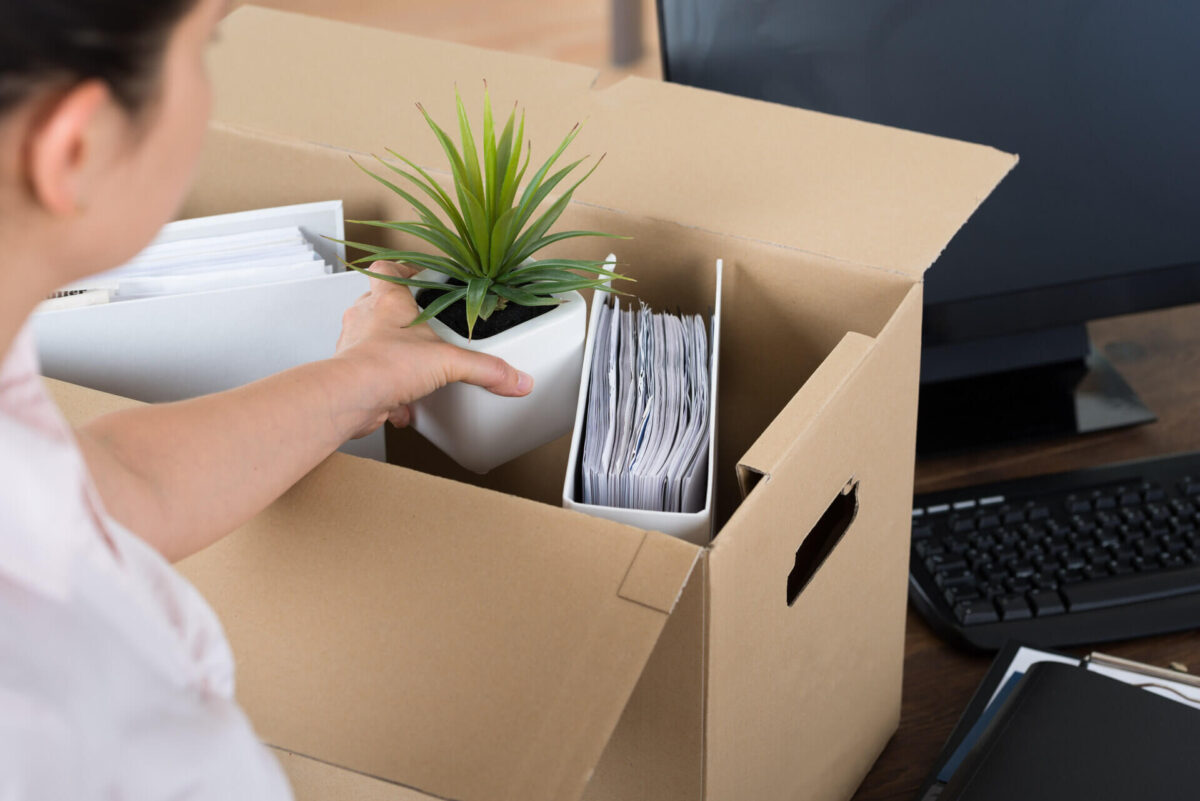Being excited about relocating is normal, but it’s also OK if you feel stressed out. Relocation is a big event, and it can cause some big feelings to come out. That’s why you must prepare to stay mindful and present during the first day of your move. We have some tips on the essential tasks for moving out and how to stay on top of each one.
Getting ready for relocation is nerve-wracking, too, but you can beat the anxiety and go through with the move successfully Prepare for the First Day of Your Move Weeks In Advance
Can you move out of your house on the first day and feel like you’ve done everything right? It can be hard to tell if we’re fully prepared for something as big as relocation when it finally happens. It’s alright if you don’t feel it in your bones; when the moment to move out arrives, trust that you and everyone involved will do a good job and that you’ll move into your new home stress-free.
As long as you’ve hired long-distance moving services on time, prepared both the old and new home for the move, and notified everyone necessary about the process, you’re good. If you’re relocating for a relationship, make sure that you and your partner are on the same page. Because if one of you wakes up on the wrong side of the bed, communication might be challenging. Encourage everyone relocating with you to stay positive and flexible while relocating.
Create a Checklist of Essential Items to Keep by Your Side During Moving Day
The most common relocation mistakes happen to people who think they can remember every task, but that’s how important things get overlooked. Instead of feeling like a multitasking superhero, why not make a checklist? Keeping a list of essential tasks will help you stay on track. You can even divide them according to when you want to achieve them, such as tasks to be completed six weeks, four weeks, a week before, and at the moment of relocation.
A checklist will allow you to plan tasks according to other elements, too. For example, if you’ve planned to move in winter, you can look up the weather forecast for the week and prepare for potential snowstorms and alike. Or, perhaps you have some unwanted furniture you’d like to leave behind. A couple of weeks before leaving the house, you can search where to donate furniture and get rid of it consciously.
Contact the Cross-Country Moving Services and Verify the Time and Date
The best time to contact a long-distance moving company is as soon as you decide to hire them. Maybe you plan to relocate to the suburbs, and there’s a lot of stuff to take care of in the meantime, like getting everything right according to the HOA rules. Movers can protect your things and prepare them for transportation with packing services, but they must know what goes and what stays beforehand.
You’ll be more aware of the costs and logistics when you get a free quote from a relocation company. That’s why calling them a couple of weeks in advance will give you a chance to plan and declutter. Additionally, movers will tell you all about the items they don’t move, such as flammable and hazardous materials. This is how you’ll stay ready for the moment of relocation.
You can work with movers on your checklist if there are tasks left for the final moments of relocation Protect Floors and Carpets Before Long-Distance Movers Arrive at Your Home
A moving day preparation that may not occur to you is protecting the floors and carpets at home. This matters because relocation workers bring dollies that transport heavy objects and furniture outside, and some of them don’t have rubber wheels. The movement back and forth could cause scratches on the wooden floors and indents on carpets.
Dealing with relocation stress is already tough, but we can only imagine how much more stressful it gets when you start to notice scratches and bumps in the flooring. Additionally, say you’re relocating in the rain. You and the workers could leave wet footprints all over the place after you’ve just cleaned up. There’s no need to increase the relocation budget or the move-out time for those things. Cover the floors in plastic or some sort of protective material.
Don’t Leave Any Items on the Floor or in the Way
One more of the relocation day tips is to make sure all items are out of the path of movement. For example, there may be quite a few feet between the kitchen and the relocation truck. When workers start loading appliances, they’ll need a clear and safe path to the outside. This will help avoid accidents, such as worker injuries and damages to your belongings.
Making everything easy to navigate and handle is one of the most commonly forgotten relocation essentials, but that’s OK. If you remember it after reading this, we did something right. If you have hardwood floors and want to learn how to protect them during the move, watch the video below for a simple technique with things you may already have at home.
Place the Boxes in the Most Accessible Room in the House
Workers of a cross-country moving company will also appreciate it if you place most of the boxes in the closest room to the exit. This is going to benefit you, too, as you may not need to protect the floors too much; you’ll save time and packing materials alike. You won’t have to calculate how long it takes to pack a house either, because everything you’ve personally packed before the relocation workers came will be waiting in the same room.
The boxes which contain unwanted items for donating can be placed in another area. If you haven’t had the chance to get rid of them yet, book storage services from cross-country movers and keep them there until you find them a suitable home.
The Containers Need to be Labeled So Movers Know How to Load the Truck
Another essential thing to do before relocation workers arrive is to label the packed boxes, especially those containing fragile items. This is vital for the truck loading process. Relocation workers are professionally trained to handle any household object, but if a box remains unlabeled, it may cause confusion.
As if going to a big city isn’t already causing you relocation anxiety now you also have to unpack after relocating without even knowing what’s what. So, labeling won’t just help relocation workers properly place your belongings into the truck. It’ll help you to unpack faster and start a new life easier.
Labeling boxes is part of relocation 101 - Don't forget this vital step Ask a Friend or Family Member to Take Care of the Kids and Pets
If you’ve been reading and thinking – okay, I know all this, but what do I do with my kids/pets when the move starts? Maybe you haven’t figured out how to keep the little ones safe at home during relocation or just worry a bit more than usual about them. This is completely normal because moving cross-country is no walk in the park, especially when it comes to relocating with pets and even more when relocating with kids.
Our advice is to contact a friend or family member to assist you. If possible, ask for this favor way before the moment of relocation arrives. You’re going to pack for days, but your kids and pets will still require the same attention and care; that’s why asking someone you’re sure could and would babysit, or pet-sit is the best course of action.
When relocation workers arrive, the kids and pets could get either hyperactive or hypersensitive, depending on how they handle strangers. Cats, for instance, can’t handle change very well; this may be surprising considering how aloof they sometimes are. If the chill-seeming cats can’t handle packing and relocating, imagine what it must be like for dogs and children, who express themselves a bit more frequently. The key is in asking for assistance and not worrying whether it’s the right thing to do. It most certainly is.
Whether you have furry friends, kids, or both, you will struggle with relocating together, so ask a friend or family member for some help Keep the Current Health Crisis in Mind and Follow the Movers’ Procedures
Relocating during coronavirus is another factor that may make you feel more nervous than usual. It’s normal – there’s a virus circling, transmitted by human contact, and here you are, packing to move out with a bunch of strangers at the house. Of course, this is very simplified but quite accurate.
However, you aren’t the only one worried about the consequences of coronavirus. You’d probably do anything in your power to protect yourself and your family members from getting sick, and you will be happy to hear relocation companies care about that, too, because they want to keep their employees safe.
These companies have developed policies and rules for their workers. They will likely ask you to stay back while they pack your belongings and take them out. This isn’t so bad – you will be able to focus on the household members and essential things. Before they arrive at the house, they’ll tell you what to pack and have available at the ready, and how to behave when you leave the old and get to the new place.
Relocation workers are careful when it comes to the coronavirus health measurements; they wish to stay safe as much as you do, so you won't regret calling them Practice Being Mindful and Calm for the First Day of the Move
A list of tips for getting ready for moving day wouldn’t be complete without us telling you that you’ve got this. Even if you have to do a last-minute relocation, you can get ready for relocation, and you will do it right. It’s probably much harder for someone relocating to another state alone, so if you are one of these people, look at it this way – you won’t have to worry about anyone else but yourself. Sometimes, even that can be overwhelming, let alone caring for others.
If you aren’t alone but are going to a new house with family, we still advise you to worry more about handling yourself when the moment for relocating arrives. Being nervous isn’t going to help anyone else feel better, so make sure to stay calm and mindful for everyone’s sake. We know it’s nerve-wracking, but it is definitely more exciting. Just think, right after you are done relocating, a new and improved home will be waiting for you to create fresh memories.
Relocating is exciting and nerve-wracking all at once. To avoid making mistakes, read our tips on how to organize the first day of your move and stay calm.












